- Allied Medical & Technical Institute provides an opportunity for organizations to hire the graduates of our schools who have completed quality, people-oriented, post-secondary career training. These graduates are capable of utilizing those skills in the business world, resulting in a positive impact for themselves and the businesses they are associated with.
School Highlights
Fortis Institute-Forty Fort serves 326 students (100% of students are full-time).
The college's student:teacher ratio of 18:1 is higher than the state community college average of 15:1.
Minority enrollment is 68% of the student body (majority Hispanic), which is more than the state average of 48%.
Quick Stats (2025)
- Enrollment: 326 students
- Private-state tuition: $15,214
- Acceptance Rate: 100%
- Student:teacher ratio: 18:1
- Minority enrollment: 68%
- Source: Integrated Postsecondary Education Data System (IPEDS)
Top Rankings
Fortis Institute-Forty Fort ranks among the top 20% of public schools in Pennsylvania for:
Category
Attribute
Diversity
Debt For Students
School Overview
The teacher population of 18 teachers has stayed relatively flat over five years.
Fortis Institute-Forty Fort
(PA) Community College Avg.
Carnegie Classification
Special Focus Two-Year: Health Professions
Baccalaureate/Associate's Colleges: Mixed Baccalaureate/Associate's
Institution Level
At least 2 but less than 4 years
At least 2 but less than 4 years
Institution Control
Private for-profit
Private not-for-profit
Total Faculty
18 staff
58 staff
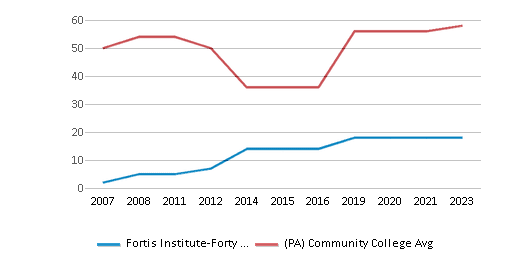
Student Body
The student population of Fortis Institute-Forty Fort has grown by 94% over five years.
The student:teacher ratio of 18:1 has increased from 10:1 over five years.
The Fortis Institute-Forty Fort diversity score of 0.77 is more than the state average of 0.68. The school's diversity has grown by 32% over five years.
Total Enrollment
326 students
361 students
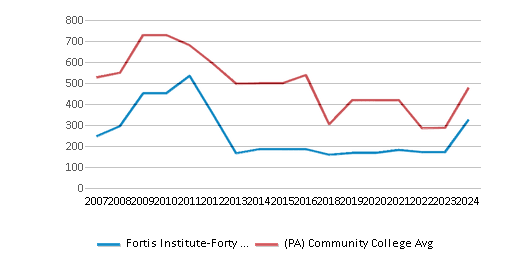
Student : Teacher Ratio
18:1
15:1
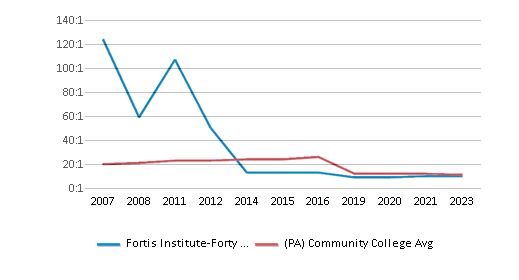
# Full-Time Students
326 students
310 students
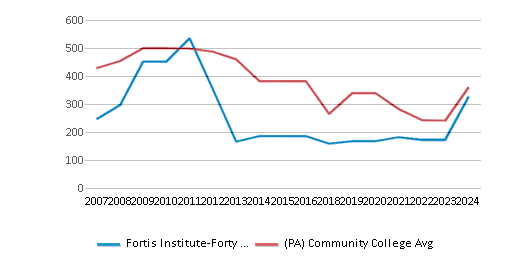
# Part-Time Students
n/a
134 students
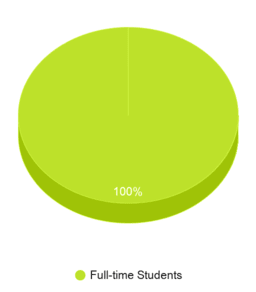
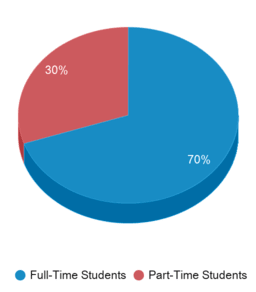
# Enrollment Undergraduate
326 students
300 students
# Full-Time Undergraduate Students
326 students
300 students
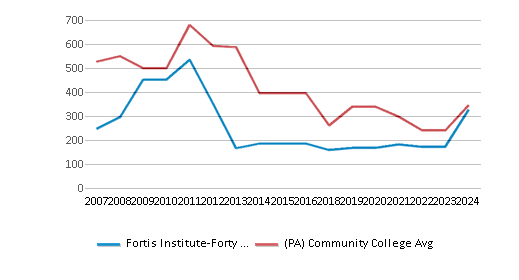
# Full-Time Graduate Students
n/a
10 students
# Part-Time Undergraduate Students
n/a
134 students
# Part-Time Graduate Students
n/a
12 students
Total Dormitory Capacity
n/a
330 students
% American Indian/Alaskan
1%
n/a
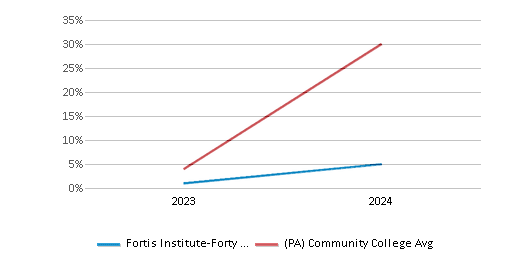
% Asian
n/a
5%
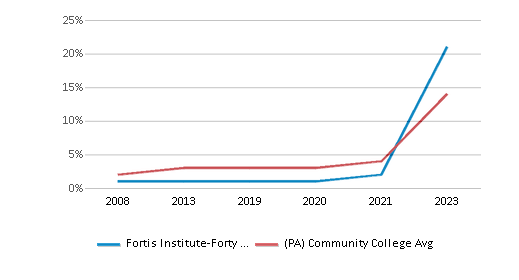
% Hispanic
24%
11%
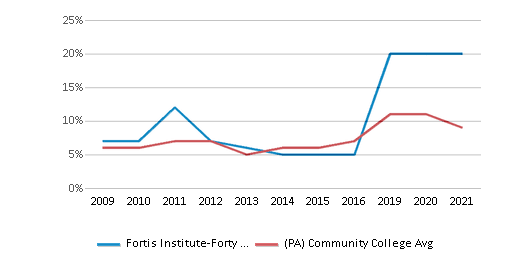
% Black
22%
15%
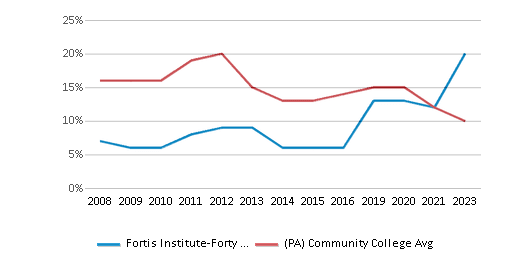
% White
32%
52%
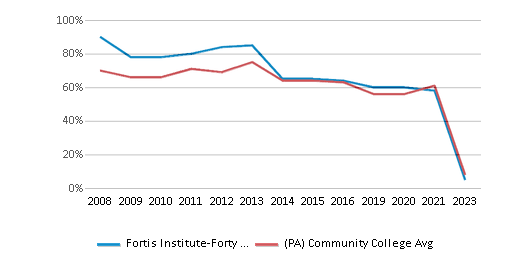
% Hawaiian
13%
3%
% Two or more races
6%
3%
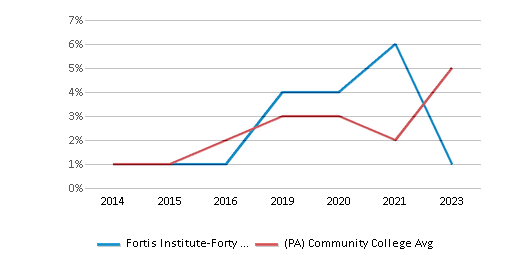
% Non Resident races
n/a
1%
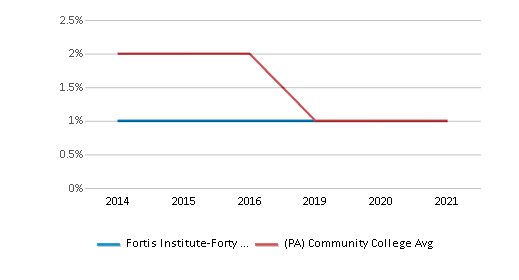
% Unknown races
1%
10%
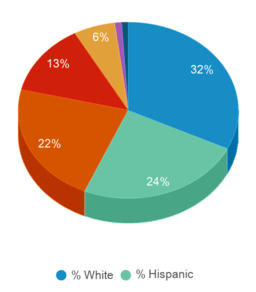
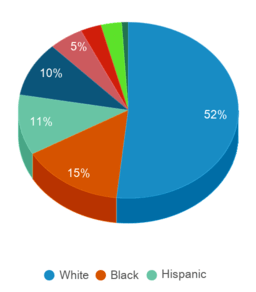
Diversity Score
0.77
0.68
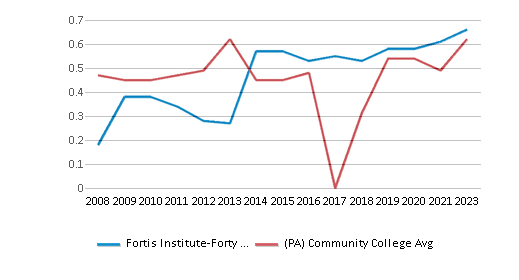
College Completion Rate (Students who graduate in less than 4 years)
0.5047%
0.6111%
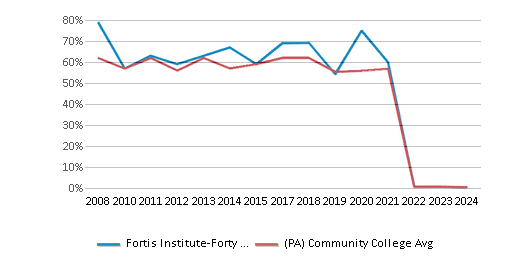
College Completion Rate (Students who graduate in 4 years or more than 4 years)
n/a
0.3822%
Average Graduate Earnings (10 Years)
$24,100
$34,900
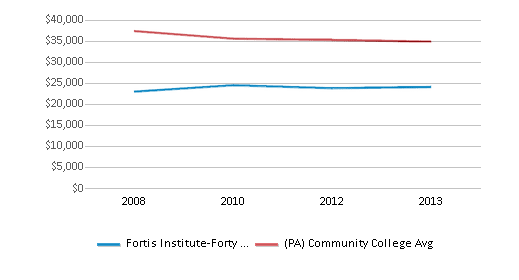
Tuition and Acceptance Rate
The private state tuition of $15,214 is less than the state average of $17,177. The private state tuition has grown by 9% over four years.
Private State Tuition Fees
$15,214
$17,177
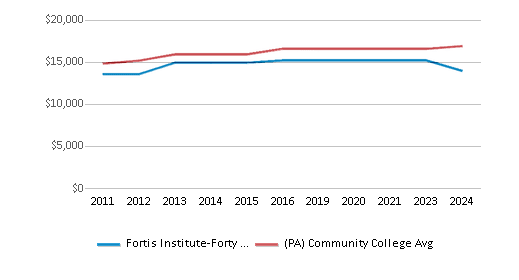
% Students Receiving Some Financial Aid
95%
91%
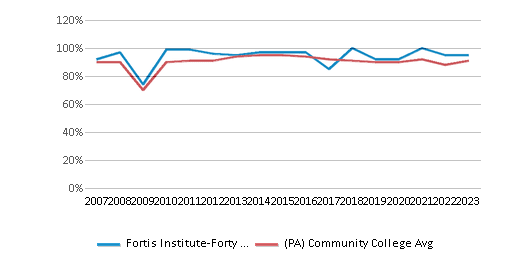
Median Debt for Graduates
$6,333
$13,620
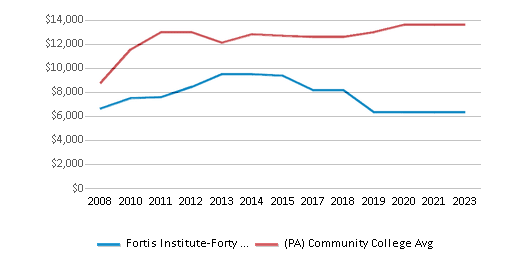
Median Debt for Dropouts
$4,442
$6,234
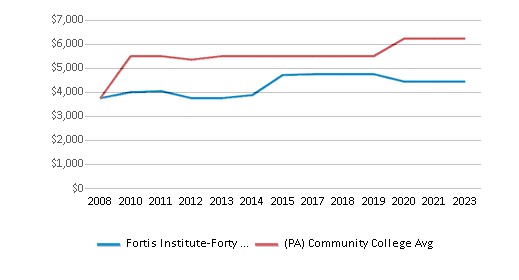
Acceptance Rate
100%
74%
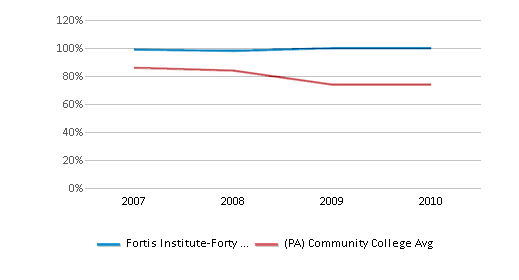
SAT Reading
n/a
460
SAT Math
n/a
470
SAT Writing
n/a
435
ACT Composite
n/a
20
ACT English
n/a
20
ACT Math
n/a
21
ACT Writing
n/a
7
Source: 2024 (or latest year available) Integrated Postsecondary Education Data System (IPEDS)
School Notes
- Allied Medical & Technical Institute is at the forefront of career education in Northeast Pennsylvania. Our facilities and programs are continually being enhanced so we can offer you the best education that will get you the career training you need to enter today's job market with confidence. The Forty Fort campus of Allied Medical & Technical Institute is located in a lovely residential area of Wyoming Valley, which has served the Greater Wilkes-Barre area since 1984. The location of the Forty Fort campus makes it easily accessible from Rt. 81 and the Pennsylvania Turnpike. Our school is comprised of a friendly admissions and administrative staff and experienced instructors. We offer hands-on training that offers our students an interesting and enjoyable learning experience. Our Forty Fort campus is proud of its history of providing a skilled workforce to the Greater Wilkes-Barre area for over 20 years. Programs offered at the Forty Fort campus includes Business Administration/Accounting, ECG/Phlebotomist/Lab Assistant, Massage Therapy, Medical Assistant, Medical Assistant Technician, Medical Transcriptionist/Insurance Billing Specialist and Pharmacy Technician. The college is accredited by Accrediting Commission of Career Schools and Colleges of Technology (ACCSCT) and licensed by the State Board of Private Licensed Schools of Pennsylvania Department of Education.
Frequently Asked Questions
How much does Fortis Institute-Forty Fort cost?
Fortis Institute-Forty Fort's private state tuition is approximately $15,214.
What is the acceptance rate of Fortis Institute-Forty Fort?
The acceptance rate of Fortis Institute-Forty Fort is 100%, which is higher than the state average of 74%.
What is Fortis Institute-Forty Fort's ranking?
Fortis Institute-Forty Fort ranks among the top 20% of community college in Pennsylvania for: Diversity in US community colleges and Least debt for graduating students.
Recent Articles

Obtaining Your Bachelor's Degree at a Community College
Explore the evolving landscape of community colleges offering bachelor's degrees, addressing affordability, accessibility, and workforce needs.

A to Z of Community College Certificates and Courses
From business and healthcare to technology and skilled trades, the article showcases the breadth of options available to students seeking to enhance their knowledge, develop new skills, or pursue career advancement.

What is a Community College?
This comprehensive guide explains what a community college is, its history, and its role in higher education. It covers the types of programs offered, differences from four-year colleges, benefits of attending, and important considerations for prospective students, providing valuable insights for those exploring educational options.





